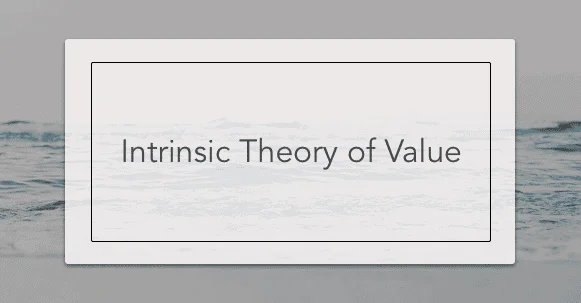Intrinsic Value Theory (also known as the Theory of Objective Value) is any theory of value in economics which holds that the value of an object, good or service, is intrinsic or contained in the item itself. These theories try to explain the exchange of value or price of a good or service.
Most such Intrinsic Theories of Value look at the process of producing an item. They determine the costs involved in that production process to measure the item’s intrinsic value.
Intrinsic Value Theory Example
The actual value of a company or an asset based on an underlying perception of its true value. This value includes all aspects of the business, regarding both tangible and intangible factors. This value may or may not be the same as the current market value. Value investors use a variety of analytical techniques to estimate the intrinsic value of securities in hopes of finding investments where the true value of the investment exceeds its current market value.
For call options, this is the difference between the underlying stock’s price and the strike price. For put options, it is the difference between the strike price and the underlying stock’s price. In the case of both puts and calls options, if the respective difference value is negative, the intrinsic value is zero.
For example, value investors that follow fundamental analysis look at both qualitative (business model, governance, target market factors, etc.) and quantitative (ratios, financial statement analysis, etc.) factors of the business. They determine if the business is currently out of favor with the market and is worth much more than its current valuation.

